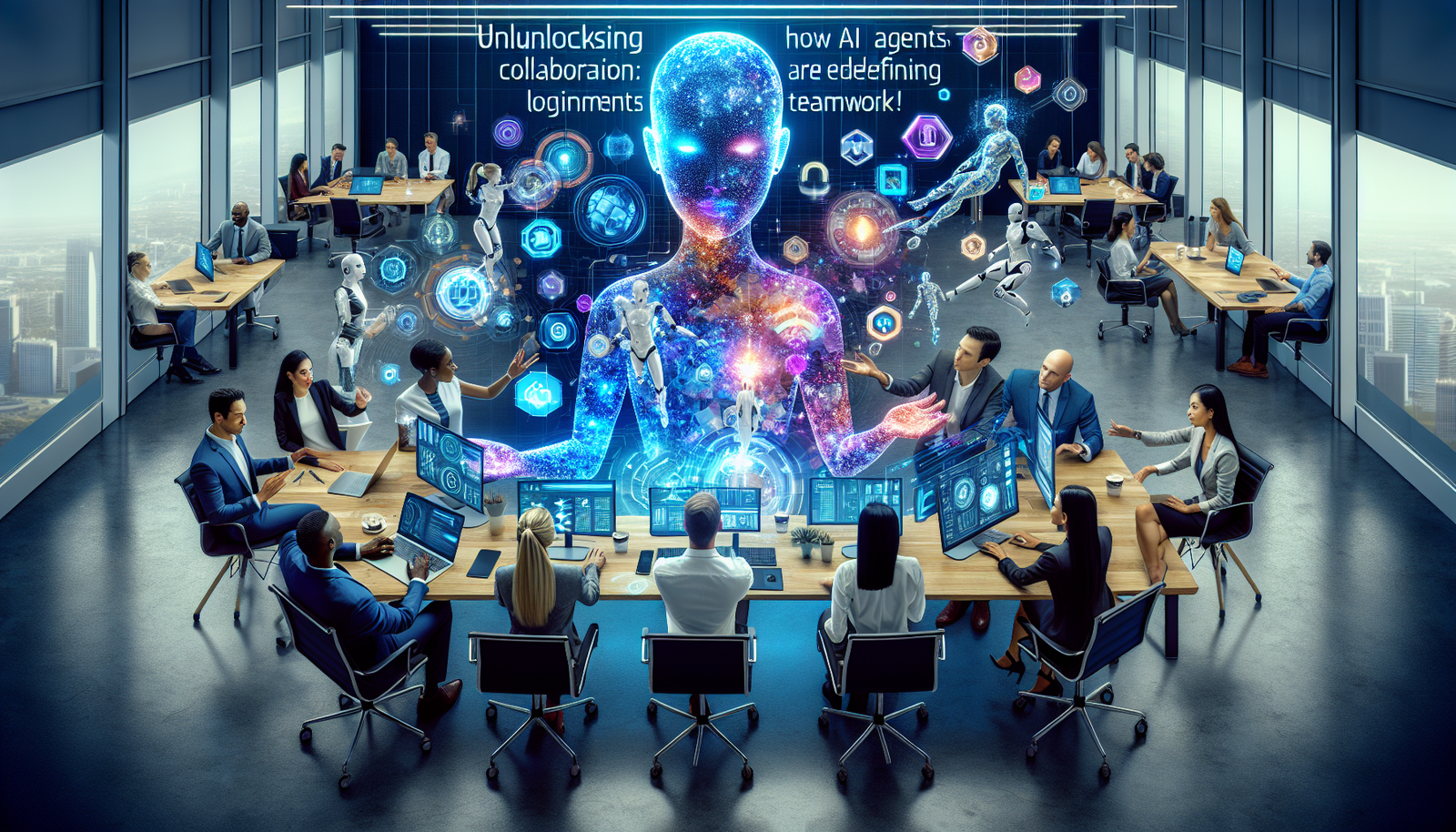Renaissance of collaboration: the emergence of AI agents is radically changing work paradigms. These digital entities promise to reinvent the collective process, making interactions more efficient and seamless. A unique synergy is establishing, where humans and AI combine their strengths to optimize productivity. Companies must adapt to these revolutionaries, integrating smart tools at the core of their collaborative methods. The transformation is inevitable, shaping a new era of work, conducive to innovation and cooperation. The stakes of this evolution prove crucial for the future of teams.
The evolution of AI agents in collaborative applications
The rise of generative AI stands out as a major trend influencing collaborative work applications. AI agents, designed to automate various tasks, are redefining how teams cooperate. Two major players dominate this sphere: Microsoft with its Copilot offering and Google alongside Gemini. Each of these services focuses on meeting summaries, producing summaries, and answering questions, driving productivity to new heights.
The coexistence of distinct models
For Bastien Le Lann, associate director at the consulting firm Lecko, the market is divided into two families. The first includes established giants like Microsoft and Google, while the second encompasses emerging publishers wishing to leverage agents to enhance collaboration. This duality reflects a diverse automation strategy aimed at optimizing team operations.
Towards advanced automation
Microsoft recently launched a platform of agents dedicated to its Copilot assistant in Microsoft 365. These agents, defined as AI assistants, have the mission of automating business processes in coordination with human users. Their capabilities range from basic agents to autonomous systems capable of performing analyses and synthesizing data effectively.
The perspective of 100% autonomous agents
Salesforce aims to see agents play a significant role in collaboration. Peter Doolan, chief customer officer at Slack, emphasizes that these agents could one day take actions on behalf of employees, even outside of working hours. Agents like Adobe Express are already aiming to generate personalized content, thus fostering engagement and interaction.
The reality of current capabilities
Despite these promising advancements, reality remains nuanced. The AI agents available on the market, including those from Microsoft, do not yet make key decisions. They facilitate exchanges and enrich existing content without replacing humans. Lucifer agents, for example, are limited to performing repetitive tasks, leaving a central decision-making role to human users.
The challenges to overcome
Reliability constitutes a fundamental issue for the future development of AI agents. Didier Gaultier from Orange Business Digital Services emphasizes that current models are not yet reliable enough to make autonomous decisions. Concerns about potential errors and the consequences of inappropriate decisions highlight the need for human validation. This is an essential element to ensure the safety and effectiveness of decision-making processes.
Forecasts for evolution over the next two years
Experts agree that a significant transformation of AI agents is expected within two years. Peter Gauden from Salesforce announces a shift towards agents capable of executing complex tasks under conditions, such as real-time HR data analysis. The development of such systems promises to make collaboration smoother while increasing productivity.
The path remains fraught with challenges. A systematic refinement of
agent capabilities is necessary for them to offer precise responses. The ability of AI to analyze and process contextual data will be crucial for its validity. Tools like those developed by specialized companies focus on this potential, envisioning a future where AI agents provide nuanced and tailored responses.
Consequently, the implementation of AI agents within collaborative applications represents an unprecedented field of innovation. Each advancement must include a thorough consideration of security, reliability, and the interpretability of generated results. Such an approach could transform modern cooperation by effectively integrating human and artificial intelligence.
Frequently Asked Questions about the future of collaborative work applications and the impact of AI agents
How will AI agents transform online collaboration?
AI agents have the potential to revolutionize online collaboration by automating repetitive tasks, synthesizing information from meetings, and facilitating communication among team members, thus improving overall efficiency.
What types of tasks can AI agents automate in a collaborative work environment?
AI agents can automate a variety of tasks, such as managing emails, scheduling meetings, generating document summaries, and gathering information for projects, thereby freeing up time for more strategic tasks.
Can we expect AI agents to take completely autonomous decisions within teams?
Currently, AI agents primarily assist users with their tasks without making autonomous decisions. However, in the coming years, an evolution towards systems capable of making certain decisions based on historical and contextual data is conceivable.
What role does generative AI play in enhancing collaborative interactions?
Generative AI enriches interactions by providing enhanced suggestions, generating relevant content, and helping users better structure their ideas during collaboration, making the collective work process smoother.
What are the main current limitations of AI agents in collaboration?
The main limitations include a reduced ability to understand complex contexts, variable reliability in some decisions, and the fact that they cannot yet fully replace essential human interactions crucial to team dynamics.
How can companies prepare their teams for the integration of AI agents into their daily operations?
Companies should train their employees on the use of AI agents, promote a culture of adaptability to new technologies, and experiment with different tools to identify those that truly enhance collaboration.
Will AI agents replace human roles in collaborative work teams?
No, AI agents are not designed to replace humans, but rather to complement their efforts by taking on repetitive tasks so that employees can focus on creative and strategic contributions.
What is the long-term vision for AI agents in collaborative work over the next few years?
In the long term, we can envision increasingly integrated AI agents capable of managing complex workflows, customizing interactions, and learning from each collaboration to improve their effectiveness.






